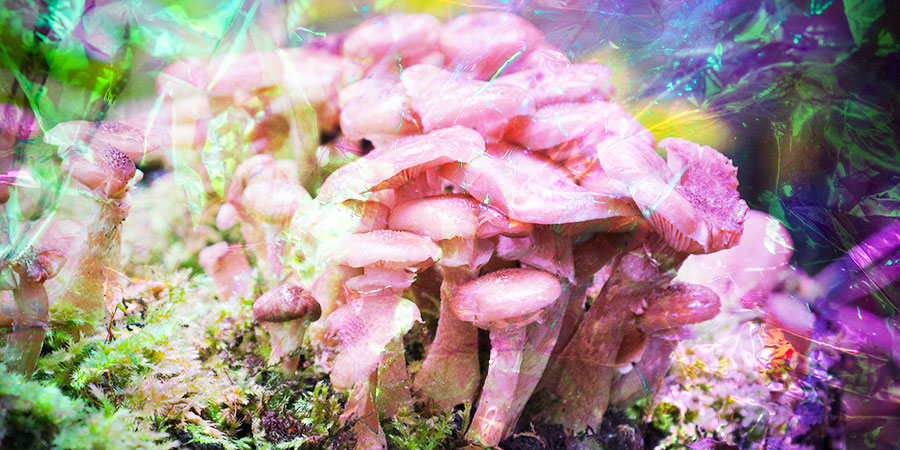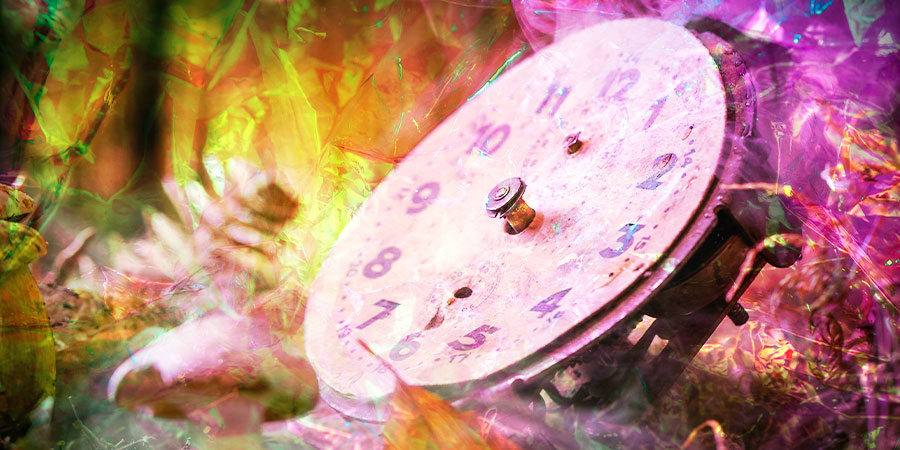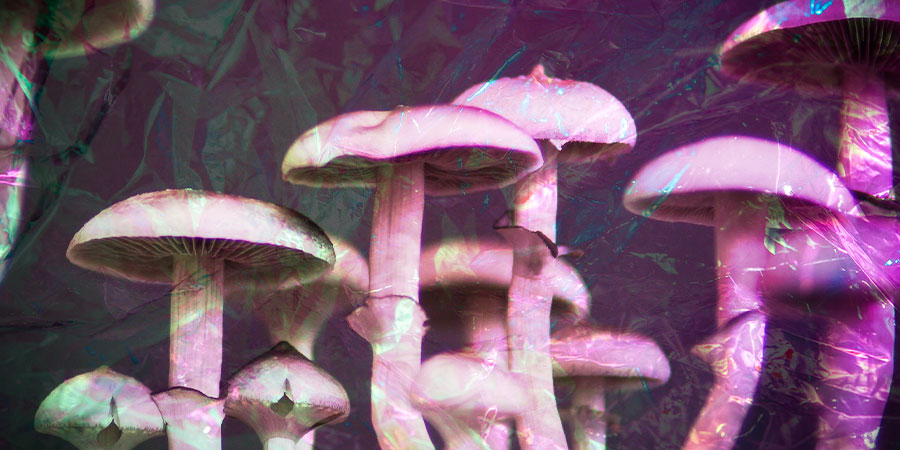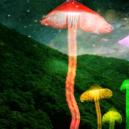Tolerance And Magic Mushrooms: Everything You Need To Know
Published :
August 1st, 2023
Categories :
Effects

Magic mushrooms and other serotonergic hallucinogens cause a high level of tolerance which then drops away again. This article looks into the interesting nature of magic mushroom tolerance, and answers some questions surrounding it.
Psychedelics have a reputation for causing powerful experiences and yet not exhibiting addictive characteristics. But did you know that the brain develops rapid and absolute tolerances to these drugs? So absolute, in fact, that they can be rendered totally ineffective after a few days of continued use.
Thankfully, the tolerance doesn’t last long. Read below to learn about tolerance to magic mushrooms and other serotonergic psychedelics.
What Is Drug Tolerance?

Drug tolerance is when, by taking a drug repeatedly, the body can take more of the drug whilst experiencing diminishing effects. In other words, they can tolerate more of a substance before it has an impact.
Usually, tolerance is associated with addiction and dependence, but this is not always the case. Moreover, defining tolerance is not as simple as it may immediately seem. For this article, we’ll make a distinction between physical tolerance and subjective tolerance.
Physical tolerance occurs when receptors in the brain become effectively numbed to a certain neurotransmitter or chemical, meaning that more of it is needed to trigger the same level of effect.
A subjective tolerance is when what’s happening on the physical level of neurotransmission may be the same, but someone has become familiar with these effects and so does not experience them in the same way as someone for whom they are novel.
The former type of tolerance usually results in people taking much more of a substance or “chasing the high”, whilst the latter can cause people to engage with an experience differently. It does not, however, rule out the potential for abuse.
Can You Develop A Magic Mushroom Tolerance?

Definitely. In fact, psilocybin-containing mushrooms and other psychedelic compounds cause tolerances to develop rapidly. Psilocin, the metabolite that psilocybin converts to in the body, and the compound which actually causes the high, is serotonergic—meaning it’s an agonist of the serotonin 5-HT2A receptors.
When exposed to psilocin (and other psychedelic compounds), these receptors undergo a process known as tachyphylaxis. Tachyphylaxis happens when neurotransmitters develop rapid and profound tolerances to a drug after a single or very few exposures. Basically, tachyphylaxis causes receptors to almost entirely shut down their ability to have a certain compound bind to them, dampening or entirely mitigating potential effects.
How Quickly Do You Get A Mushroom Tolerance?
In the case of psilocybin/psilocin, a huge tolerance will develop the second these chemicals start swirling around your brain. If you try to dose again during or immediately after a trip, you’ll likely notice that it has little or no effect, even if you take much more. Similarly, if you take them again in the days following, the effects will be significantly limited.
There is a steep curve when developing a tolerance to psychedelic, serotonergic substances. In order even come close to getting the same effects, you would need to take exponentially more of the substance.
How Long Does Mushroom Tolerance Last?

So does this mean that you only have one shot at a shroom trip? Thankfully not. As fast as tachyphylaxis comes, it goes away again too. Though there are very few studies around psilocin tolerance, it seems that after around 14 days of abstaining from serotonergic psychedelics, your neurotransmitters are likely to be in about the same place they were on day 0.
In fact, after around seven days, you’ll likely be fairly close to normality again.
Psilocin moves through the body fast. Around three hours after ingestion, much of it will already be being processed by the kidneys and will be ready to be excreted. After 24 hours, all traces of psilocybin/psilocin will have left the blood and urine. It will only be detectable after this period in hair samples.
Just because your brain chemistry returns to the same place quickly, that doesn’t mean the experience will always remain the same. If you took mushrooms every two weeks consistently, you would inevitably build up some kind of tolerance to their effects, even if not to the drug on a physical level.
So the longer you wait between trips, the more intense the experiences will be.
Can Other Psychedelics Affect Mushroom Tolerance
Certainly. Lysergic acid diethylamide (LSD) and mescaline are both similarly serotonergic, and there is evidence that these two drugs and magic mushrooms can all cause a cross-tolerance. So, unfortunately, you can’t do one day on shrooms, another on acid, and another peyote all in a row.
The exact mechanisms at work here are currently unknown, but it all seems to be linked to tachyphylaxis of the serotonin 5-HT2A receptors, on which many hallucinogenic drugs work.
It is unclear what effects other drugs may or may not have on magic mushroom tolerance.
Are Magic Mushrooms Addictive?

Regarding most drugs, tolerance and addiction go hand in hand. A gradually building tolerance to alcohol, opioids, or nicotine means that people need to take more and more to get the same effects. In time, this behaviour can lead to addiction.
With psychedelics, this seems not to be the case. In fact, some suspect that the rapidity and absoluteness of tachyphylaxis is one of the characteristics of these drugs that stops them from exhibiting addictive effects. Whereas you can drink alcohol and feel its effects continuously, even if you have to increase the amount, you cannot with psychedelics. Do them for three or four days in a row, and the effects diminish entirely, meaning you will stop taking them.
This means that developing an abusive relationship with psychedelics is much more difficult than with many other drugs. Moreover, the nature of the hallucinogenic experience means abuse is unlikely. Whereas with alcohol, for instance, the effects can be repeatedly enjoyed, it would be much harder to imagine that many people would gain much pleasure from tripping constantly. The psychedelic experience is certainly no place to hide!
Does Microdosing Magic Mushrooms Cause a Tolerance?
Microdosing is a fairly new phenomenon about which we know very little. Almost all evidence is anecdotal, and it’s therefore difficult to make general claims about it.
Though, it seems likely that taking a substance every two or three days would likely affect tolerance. That being said, microdoses are just that, micro. And it may be that small amounts do not trigger tachyphylaxis in the same way that large, perceptible doses do.
One study from Norway investigated a small group and asked them to self-report the effects of microdosing (Johnstad 2018). Though too small to generalise from, there were a few reports worthy of note regarding microdosing and tolerance. Those who microdosed between one and three times a week did not report any buildup of tolerance, whereas those who microdosed every day sometimes did.
The exact effects of microdosing are unknown, but one thing that seems certain is that there aren’t any obvious reports of people microdosing and then being unable to experience the full-blown effects of a psychedelic trip.
There’s More Than Just Physical Tolerance

As mentioned, physical tolerance isn’t all there is. In time, regular users will grow to be able to tolerate the effects of magic mushrooms (and other psychedelics) more than they originally could, even if the effects are in some sense the same. However, this is no bad thing. If you want to investigate the psychedelic experience, then developing this kind of tolerance is part of it, as it means you can push doses higher and higher, entering states which would originally have been terrifying but are now fascinating and wonderful.
That being said, be careful! Nobody is experienced enough with hallucinogenic drugs to be immune from having a bad experience, nor is anyone experienced enough to be able to do away with caution. The psychedelic experience demands respect, and if it gets it, it will show it in return.














